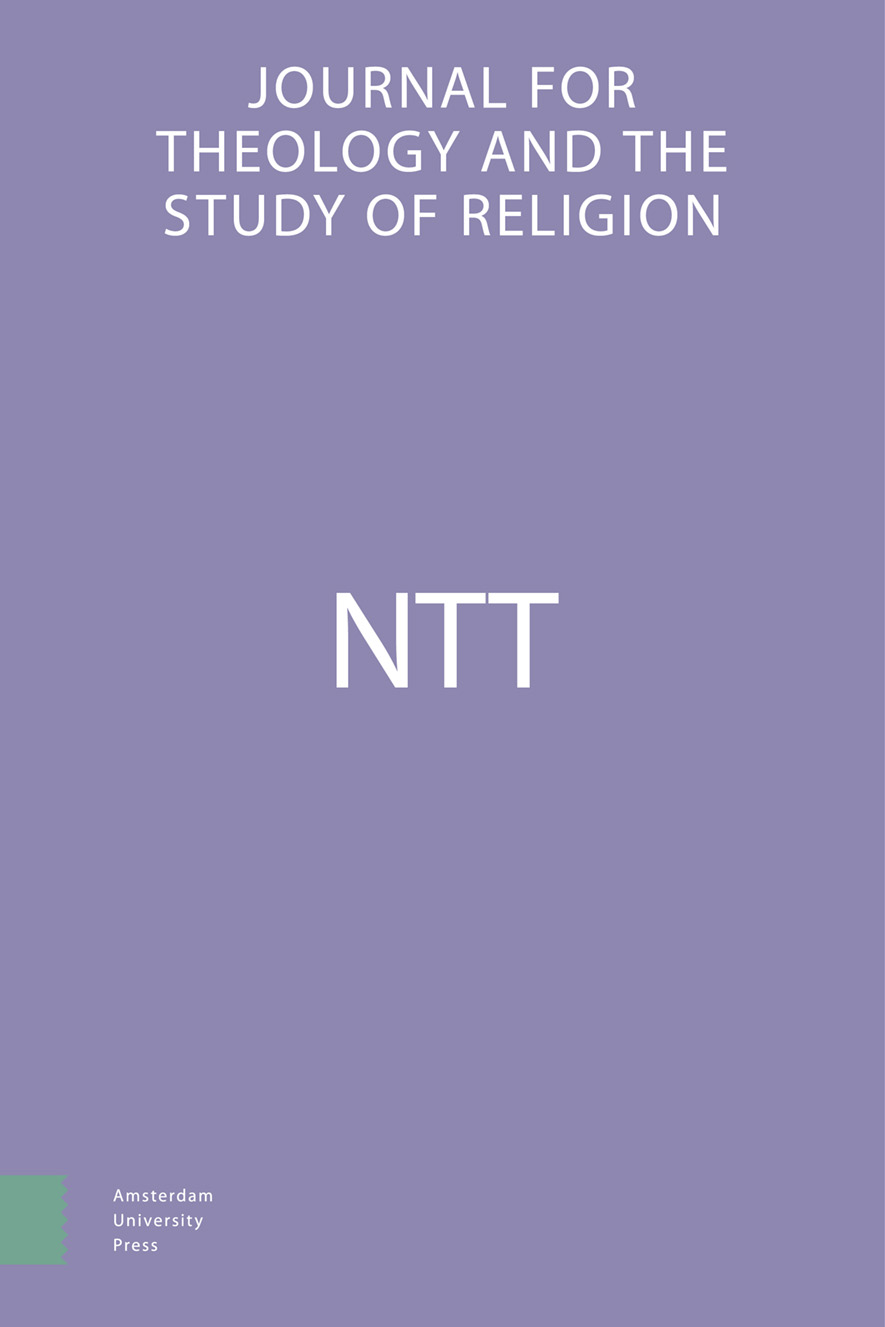- Home
- A-Z Publications
- NTT Journal for Theology and the Study of Religion
- Previous Issues
- Volume 46, Issue 3, 1992
NTT Journal for Theology and the Study of Religion - Volume 46, Issue 3, 1992
Volume 46, Issue 3, 1992
-
-
De plaats van de godsdienstwetenschap in de theologie
More LessAuthor: J.H. KamstraAbstractThe relation of science of religion with theology in the Netherlands is the topic of this paper. In the course of history it can be characterized by a love-hate relationship. Eventhough many scientists of comparative religion used this discipline in order to prove the superiority of Christianity over all the other forms of religion, they were looked at by many theologians with distrust. At present a different situation is emerging in the Netherlands: there are increasing numbers of young people who by no means like to be dependent on the established churches. Yet they do believe and have to be looked after. Are they not a new object of research and, study for the ever shrinking theological faculties and should this study not involve fully and free from any distrust science of religion?
-
-
-
Een nieuwe studie over de Hif’il
More LessAuthor: J. HoftijzerAbstractIn this article the thesis of J.M. Léonard defended at the Theological Faculty in Montpellier in 1990 is discussed: Enquête sur l’émergence du hifil en Hébreu Biblique. The author describes the relation of this study to the well-known book of Jenni on the piel. But the main accent of this article is on the methodological side of this thesis: the question in which way the methods and the approaches to the problems involved are of interest for further study on the functioning of the Hebrew stems.
-
-
-
‘Gij zult van goden geen kwaad spreken’
More LessAuthor: Pieter W. van der HorstAbstractThe background of the LXX’s use of the plural theoi instead of the expected ‘God’ is probably to be explained as apologetically directed against the charges from Alexandrian antisemites who accused Moses of antireligious crimes. Jewish authors explain that Moses wrote this in the hope that abstention from reviling the pagan gods might bring the gentiles closer to Israel’s God. Christian authors either have to defend themselves against the argument of pagan authors who asserted that this text proves that Moses condoned polytheism or they explain the words ‘gods’ as referring to ecclesiastical or worldly authorities.
-
-
-
De verloren zoon
More LessAuthor: R. NautaAbstractAugustine’s conversion to Christianity was also a choice for a life of chastity and continence. The machismo complex of the absent father and the suffering of the self-sacrificing mother seem to have been crucial in Augustine’s decision to become a christian. His conversion to christianity and celibacy is both a confirmation of his strong attachment to his mother and a protest against her narcissistic claims. As a young man he resisted the wishes and ambitions of his mother by indulging in heresy and carnality, on becoming a christian he preferred to distance himself from the ambiguity and ambivalence of life - as a convert, embracing a distant God Father, he distanced himself from his own basic desires and chose to remain a son forever. Elected to serve the church, the Mother of us all, he expressed the clerical motivation of a lost son.
-
-
-
Het negentiende-eeuwse Nederlandse protestantisme in recente publikaties: Een overzicht
More LessAuthor: Aart de GrootAbstractOut of more than 1600 books and articles, which have been published in the years 1975-1990 on the history of Dutch protestantism in the nineteenth century, the author discusses a hundred. On the whole a certain subjectivism in dealing with the ideas of the theologians of that period, is still active.This is certainly due to the fact that modern Dutch theology is still linked in many ways with the previous century. New tendencies in historical investigation emphasize sociological processes and the mentality of the common people.
-
Volumes & issues
-
Volume 79 (2025)
-
Volume 78 (2024)
-
Volume 77 (2023)
-
Volume 76 (2022)
-
Volume 75 (2021)
-
Volume 74 (2020)
-
Volume 73 (2019)
-
Volume 72 (2018)
-
Volume 71 (2017)
-
Volume 70 (2016)
-
Volume 69 (2015)
-
Volume 68 (2014)
-
Volume 67 (2013)
-
Volume 66 (2012)
-
Volume 65 (2011)
-
Volume 64 (2010)
-
Volume 63 (2009)
-
Volume 62 (2008)
-
Volume 61 (2007)
-
Volume 60 (2006)
-
Volume 59 (2005)
-
Volume 58 (2004)
-
Volume 57 (2003)
-
Volume 56 (2002)
-
Volume 55 (2001)
-
Volume 54 (2000)
-
Volume 53 (1999)
-
Volume 52 (1998)
-
Volume 51 (1997)
-
Volume 50 (1996)
-
Volume 49 (1995)
-
Volume 48 (1994)
-
Volume 47 (1993)
-
Volume 46 (1992)
-
Volume 45 (1991)
-
Volume 44 (1990)
-
Volume 43 (1989)
-
Volume 42 (1988)
-
Volume 41 (1987)
-
Volume 40 (1986)
-
Volume 39 (1985)
-
Volume 38 (1984)
-
Volume 37 (1983)
-
Volume 36 (1982)
-
Volume 35 (1981)
-
Volume 34 (1980)
Most Read This Month

Most Cited Most Cited RSS feed
-
-
How to read Philo
Author: D. T. Runia
-
- More Less

